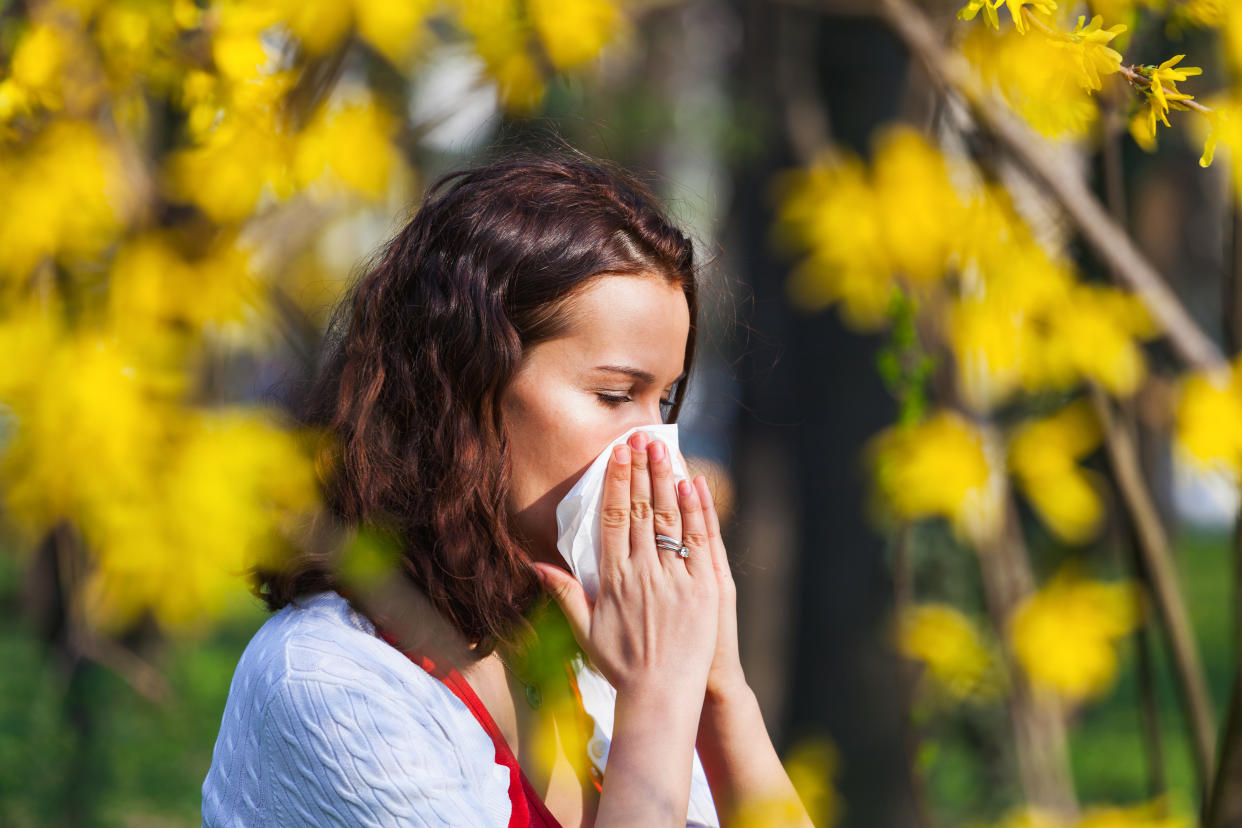How hay fever affects your mouth and what to do, according to a dentist

You may have experienced hay fever symptoms sooner than expected this year due to an earlier bloom in pollen. And with the UK public previously warned of a 'pollen bomb', and high levels expected again later this week in some parts of the country, it's safe to say we're not clear of the risk of the sniffles.
But, warns dentist Dr Rahul Nehra, "While hay fever, also known as allergic rhinitis, primarily affects the upper respiratory system, causing symptoms such as sneezing, congestion, runny nose, and itchy, watery eyes, it can also impact the mouth in various ways.
"While these symptoms may not directly damage oral health, they can be uncomfortable and may increase the risk of issues like tooth decay and gum disease if not managed properly."
So, if this sounds familiar, or you want to be armed with as much knowledge as possible in case you do experience these pesky allergic rhinitis symptoms this spring and summer, here's what you need to know.

Hay fever mouth symptoms and what to do about them
Dry mouth
"Hay fever medications, such as antihistamines, can sometimes cause dry mouth as a side effect. Dry mouth can lead to discomfort, difficulty swallowing, and bad breath. To combat dry mouth, staying hydrated by drinking plenty of water and using sugar-free lozenges or gum can help stimulate saliva production," says Dr Nehra, lead dentist at The Smile Gallery.
Sore throat
"Postnasal drip, a common symptom of hay fever, can irritate the throat and lead to a sore throat. Gargling with warm salt water or using over-the-counter throat lozenges can help soothe throat irritation," the dentist adds.

Oral allergy syndrome (OAS)
"Some individuals with hay fever may experience oral allergy syndrome, which occurs when the immune system reacts to certain proteins in fresh fruits, vegetables, and nuts that are similar to the proteins found in pollen. This can cause itching or tingling in the mouth, lips, or throat after consuming these foods," explains Dr Nehra.
"Avoiding trigger foods, or cooking them to break down the proteins can help prevent symptoms."
Tooth pain
"Sinus pressure and congestion associated with hay fever can sometimes lead to tooth pain or discomfort, especially in the upper teeth. Using saline nasal sprays or decongestants can help relieve sinus pressure and alleviate tooth pain," the dentist recommends.
Canker sores
"Some individuals may experience an increase in canker sores during hay fever season. These painful ulcers can develop inside the mouth and may be triggered by stress or immune system changes," says explains Dr Nehra. "Over-the-counter topical treatments can help alleviate discomfort and promote healing."
Watch:Top tips for reducing the effects of tree pollen
Gingivitis
"Nasal congestion and mouth breathing can contribute to dryness in the mouth, leading to an increased risk of gingivitis (gum inflammation). Maintaining good oral hygiene, including brushing twice a day, flossing daily, and using an alcohol-free mouthwash, can help prevent gingivitis," advises Dr Nehra.
In summary, the dentist adds, "Prevention methods for minimising oral symptoms include managing allergies with medication prescribed by a healthcare professional, maintaining good oral hygiene practices, staying hydrated to combat dry mouth, avoiding irritants like tobacco and alcohol, and rinsing the mouth with water after taking allergy medications or experiencing postnasal drip.
"Although some individuals may be more prone to experiencing oral symptoms during hay fever season due to factors such as genetics or the severity of their allergies, proactive measures can help alleviate discomfort and maintain oral health."
And remember: "If you're experiencing persistent or severe oral symptoms related to hay fever, it's essential to consult with a healthcare professional or dentist for personalised advice and treatment options. They can help identify the underlying cause of your symptoms and recommend appropriate management strategies."
Read more: How to prepare for seasonal allergies as hay fever to reach 'all time high' (Yahoo Life UK, 5-min read)
Read more: Hay fever remedies that really work (Yahoo Life UK, 6-min read)
Read more: The surprising food, other than sugar, that can cause cavities (Yahoo Life UK, 6-min read).


